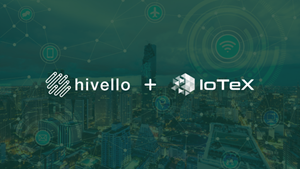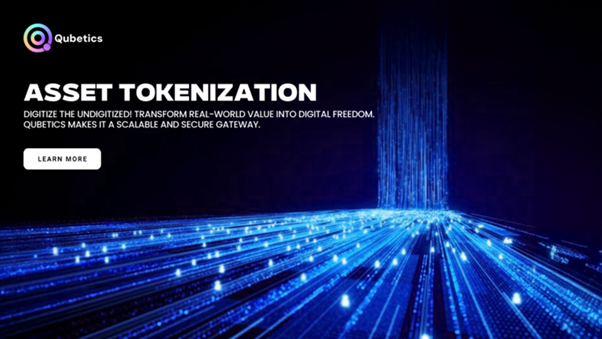io.net Showcases Decentralized Infrastructure Network at IO Summit
Tuesday, June 4, 2024 3:08 PM
136

At the IO Summit, io.net unveiled its decentralized physical infrastructure network, demonstrating recent achievements and future plans. The June 4 keynote featured CEO Ahmad Shadid and notable guests like Solana’s Anatoly Yakovenko. io.net raised $30M in Series A funding, increasing its valuation and adoption. Shadid expressed excitement about scaling the internet of GPUs, launching io.net Cloud, and meeting demand for a scalable Decentralized Physical Infrastructure Network (DePIN). The team also shared updates on developing utilities for DePIN.
Related News

6 days ago
Top Crypto Tokens to Watch in 2025: BlockDAG, Toncoin, Litecoin, and FilecoinAs 2025 approaches, the cryptocurrency market is abuzz with speculation about which tokens will emerge as top performers this year. Investors are shifting their focus from mere hype to tangible progress, adoption rates, and strategic market positioning. Among the frontrunners, BlockDAG is gaining significant attention, alongside established players like Toncoin, Litecoin, and Filecoin, each offering unique advantages worth monitoring.
BlockDAG is making waves with its ambitious exchange strategy, planning to list on 20 centralized exchanges on June 13. This aggressive move is not just about visibility; it signifies a readiness to expand its market reach. With over $273 million raised and a presale currently underway, BlockDAG has already sold more than 21.4 billion coins, yielding substantial returns for early investors. Its hybrid model, which combines DAG scalability with Proof-of-Work reliability, is attracting both developers and miners, positioning it as a serious contender in the crypto landscape.
On the other hand, Litecoin remains a reliable choice in the crypto sphere, known for its fast transactions and low fees. Its potential in cross-border payments is gaining traction, appealing to investors seeking a blend of legacy trust and future utility. Meanwhile, Toncoin benefits from its integration with Telegram, providing seamless access to millions of users and enhancing its adoption prospects. Lastly, Filecoin is carving out its niche in decentralized storage, catering to the growing demand for secure data solutions. Each of these tokens presents distinct opportunities, but BlockDAG's early momentum and strategic roadmap may give it the edge in the competitive crypto market of 2025.

11 days ago
CUDOS Intercloud April Update: Record Growth and New InitiativesIn April, CUDOS Intercloud celebrated significant milestones and shared impressive metrics in its monthly update. The platform reported a record revenue of $204,505, alongside a remarkable 27% increase in GPU consumption, totaling over 300,000 hours. This growth reflects the rising demand for decentralized computing solutions, with more than 2 million GPU compute hours surpassed. CUDOS emphasized its commitment to transparency by providing real-time metrics on GPU capacity, VM deployment, user growth, and ecosystem spending, showcasing a clear distinction in cloud service delivery.
A notable highlight was the six-month anniversary of CUDOS's partnership with the Artificial Superintelligence Alliance (ASI). During this period, CUDOS has served over 15 million GPU hours and welcomed more than 30,000 users. The collaboration aims to build a decentralized compute layer that supports AI development without centralized bottlenecks. Additionally, CUDOS introduced "One Click Computing," allowing users to deploy AI stacks effortlessly, eliminating the complexities traditionally associated with AI deployment.
CUDOS also participated in the Ai2Peace initiative, focusing on using AI for global good. The platform's community rewards program concluded at the end of April, encouraging user engagement through referrals and feedback. Furthermore, CUDOS was represented at Paris Blockchain Week, where discussions highlighted the importance of permissionless compute access and the potential for blockchain to enhance AI's energy efficiency. As CUDOS continues to innovate and expand its offerings, it aims to foster a more sustainable and accessible computing environment for all users.

12 days ago
IoTeX Launches Staking Program on DePINscan to Enhance User Participation in DePIN EcosystemsOn May 21, 2025, IoTeX, a prominent Layer 1 blockchain designed for decentralized physical infrastructure networks (DePIN), officially launched its Staking Program on DePINscan. This unified staking interface aims to empower users by providing a simplified and trusted gateway to support and earn from innovative DePIN ecosystems. The program initially offers native staking support for Hivello and Functionland, both of which are incubated by IoTeX, along with integrated staking for other projects like Filecoin, Fluence, Swan, and Aethir, in partnership with technical collaborator Parasail.
The launch of the staking program is a significant milestone as it aligns with the maturation of DePIN from a nascent concept to a fully developed industry. Qevan Guo, CTO and Co-Founder of IoTeX, emphasized that this initiative facilitates scalable user participation in real-world infrastructure projects. DePINscan is not merely a dashboard; it represents a gateway to the future of Web3 utility, providing visibility into over 100 projects and an ecosystem value exceeding $1 billion. With the introduction of native and cross-chain staking, token holders can now easily delegate to real-world networks, track rewards, and support aligned DePIN projects.
The integration of high-profile projects like Filecoin and Aethir highlights IoTeX's commitment to fostering open collaboration and chain-agnostic support. All staking operations are secured by Parasail’s robust infrastructure, ensuring reliability and scalability for future partners. Dom Carosa, co-founder of Hivello, expressed enthusiasm about the staking program, noting it as a significant opportunity for users to engage with decentralized infrastructure intuitively and rewarding. IoTeX plans to continue onboarding new projects and providing extensive support through marketing, infrastructure tools, and cross-chain integrations, inviting developers and builders to join their staking program.

13 days ago
Hivello's $HVLO Token Listed on DePINscan, Enhancing DePIN AccessibilityHivello, a decentralized physical infrastructure network (DePIN) aggregator, has announced the listing of its token $HVLO on DePINscan, a prominent analytics platform for DePINs on IoTeX. This strategic move is set to enhance Hivello's visibility within the DePIN and IoTeX ecosystems, allowing users to access information about Hivello and participate in staking directly on IoTeX's Layer 1 blockchain. With the DePIN market projected to grow significantly, this listing positions Hivello at the forefront of a rapidly evolving sector, catering to both crypto enthusiasts and newcomers interested in decentralized infrastructure.
The partnership with IoTeX is a pivotal development for Hivello, as it not only increases the accessibility of $HVLO but also provides users with essential tools and incentives to engage with decentralized networks. Domenic Carosa, Chairman of Hivello, emphasized the importance of this collaboration, stating that it aligns with their mission to onboard Web2 users into the Web3 space. The integration with DePINscan is expected to facilitate a smoother transition for users looking to explore and participate in the DePIN ecosystem, which boasts over 13 million active devices contributing daily.
As DePIN adoption accelerates globally, the collaboration between Hivello and IoTeX signifies a major step toward expanding participation in decentralized infrastructure. Qevan Guo, CTO and Co-Founder of IoTeX, highlighted that this launch represents a convergence of technical innovation and strategic partnerships, ultimately making DePIN more accessible to a broader audience. With the market anticipated to soar from $50 billion in 2024 to $3.5 trillion by 2028, Hivello is well-positioned to capitalize on this growth, fostering a new wave of participation in decentralized technologies.

14 days ago
Qubetics: The Next Crypto to Hit $1?As the digital asset market begins to recover from recent volatility, investors are shifting their focus from speculation to real-world utility and long-term adoption potential. One standout project gaining attention is Qubetics ($TICS), which positions itself as the world's first Web3 aggregator. By combining asset tokenization with a robust marketplace, Qubetics aims to convert physical and digital assets into tradable digital tokens, thus addressing one of blockchain's most pressing challenges. This innovative approach not only enhances accessibility to various asset classes but also empowers businesses and individuals to engage in seamless trading, making Qubetics a key player in the race to hit $1.
In addition to Qubetics, other tokens like Kaspa (KAS) and Theta (THETA) are also gaining traction. Kaspa utilizes a high-throughput blockDAG model to achieve rapid transaction speeds, making it a strong contender for decentralized technology. Meanwhile, Theta focuses on creating a decentralized content delivery network for video streaming, rewarding users who contribute bandwidth. Both projects are backed by passionate developer communities and are carving their own paths towards mass adoption, showcasing unique narratives that set them apart in the competitive crypto landscape.
The Qubetics presale is currently in its 35th stage, with over $17 million raised and a growing number of early adopters. The presale operates on a 7-day cycle, creating continuous price momentum ahead of the mainnet launch in Q2 2025. As the demand for Qubetics continues to rise, it is increasingly viewed as a leading candidate for the next crypto to hit $1, driven by its focus on real-world utility and strategic growth. With its innovative marketplace and cross-chain compatibility, Qubetics is not just another crypto project; it is a potential disruptor in the financial landscape, making it an attractive option for investors looking for long-term gains.

18 days ago
IPFS Revolutionizes Data Transmission in Space with Filecoin and Lockheed MartinThe Interplanetary File System (IPFS) has made significant strides in reducing latency for data transmissions in space, as demonstrated by a successful collaboration between the Filecoin Foundation and Lockheed Martin Space. During the Consensus 2025 conference in Toronto, Marta Belcher, president of the Filecoin Foundation, revealed that they have successfully transmitted data using a version of IPFS on a satellite orbiting Earth. This adaptation enhances privacy and security by identifying data based on its content rather than its location, which is particularly beneficial for space communications. The architecture of IPFS is designed to mitigate delays, address data corruption from radiation, and enable cryptographic verification to ensure data integrity.
Belcher highlighted the challenges of data transmission from celestial bodies, noting the multi-second delay from the Moon and multi-minute delay from Mars. The IPFS system allows users to retrieve data based on a content ID from the nearest source, whether it be a personal device, a nearby satellite, or a lunar station. This decentralized approach reduces reliance on centralized data centers and improves the reliability of data storage in environments where hardware may degrade, which is crucial for maintaining the integrity of sensitive materials like satellite images.
The growing interest in decentralized archival storage among media companies and potential military applications of this technology indicate a promising future for IPFS. Belcher emphasized the power of having a deep archive accessible globally, which could revolutionize how media and military organizations manage their data. Additionally, the FIL token, a utility token within the Filecoin ecosystem, boasts a market capitalization of approximately $1.8 billion, reflecting the increasing relevance of decentralized storage solutions in today's digital landscape.
Signup for latest DePIN news and updates